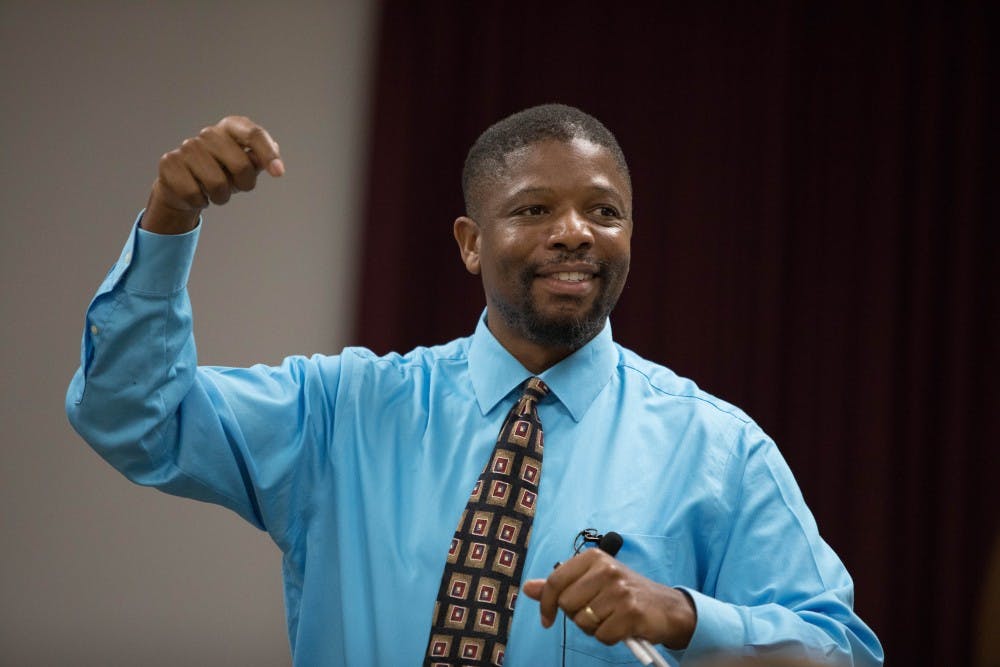Award-winning journalist emphasizes knowing the whole story, being a beacon for those who struggle
Bailey spoke about his recent book: "My Brother Moochie: Regaining Dignity in the Face of Crime, Poverty, and Racism in the American South."

Isaac Bailey speaks about his life and his book: "My Brother Moochie" on Oct. 2 at the Bovee University Center Auditorium.
“He kept stabbing him, and he kept stabbing him, maybe 48 times, maybe 50 times, until he was dead, until his head was almost severed,” said award-winning journalist Issac Bailey.
He spoke of his brother “Moochie” who, in April 1982, got drunk and high, went about six miles down from their home and stabbed a man to death. Moochie went to prison for it.
Bailey spoke on campus Thursday in the Bovee University Center Auditorium about his recent book: "My Brother Moochie: Regaining Dignity in the Face of Crime, Poverty, and Racism in the American South."
He said we cannot judge people on a single event without knowing their story, and we need to be a beacon for those who have suffered trauma.
“We have to get away from this idea that a singular bad act is solely the result of a singular person,” said Bailey. “We have to start beating back stereotypes built upon these lazy ways of thinking.”
There’s more to Moochie's story.
“This is not just one date; this is not just one event,” said Bailey. “My brother Moochie, when he was 8 years old, stood in the corner in our dark apartment by himself, waiting for my dad to get home with a knife behind his back.”
Moochie had been waiting to kill his father because his father repeatedly beat him and his mom.
Bailey was 9 years old in April 1982, and he has PTSD from the event. Even today, Bailey still struggles with his past trauma.
Now, he uses it to get through tough times in his life.
Fast-forward to Bailey’s first college class: psychology 101. He was the only African-American. He received his first test back and got the lowest score, a 48.
“Everything in that moment pointed to something ugly, that all of the stereotypes were true, that I wasn’t good enough to be there,” said Bailey.
In that moment, Bailey said he thought about April 1982. He thought that if he could get past April 1982, he would get through this.
Bailey explained that while he may have gotten through these tough moments, Moochie was not put in the position to do the same.
“Even if you are growing up in the same house, you are not growing up in the same environment,” he said.
Bailey said we can’t look at people who have made it out of tough situations and assume that everyone can do it because those few have.
Grant freshman Josh Moore wants to be a teacher, and found it helpful to see how he can help a student who is going through similar issues.
Bailey said we must help those who have faced trauma and are struggling because this isn’t just his family who has faced these situations.
“There are countless eight-year-old Moochies standing in a corner of some apartment at night in the dark, right now, as I speak, trying to figure out how to get out of a hell that they were born into,” said Bailey.
We must help people see that they are not “ugly,” but worthy and beautiful, he said.
“This helps me in a lot of ways because I have also faced challenges through abuse that I went through as a kid," Mount Pleasant graduate student Katherine Ranzenberger said. "I have to... lift myself up and remind myself that I’m actually capable of this stuff."



